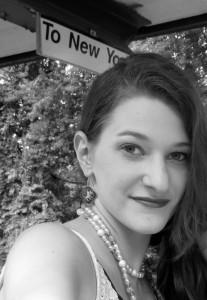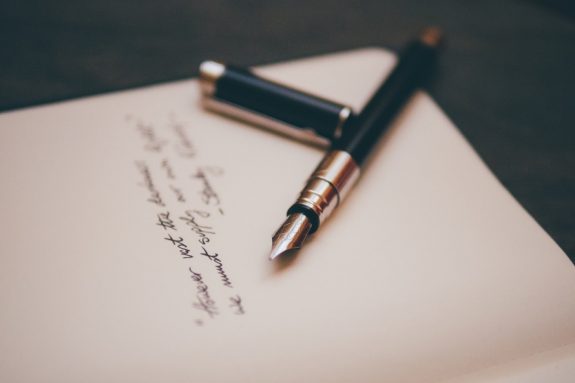Especially among first-time authors, turning over your beloved project to an editor may seem like an incredibly daunting proposition. Some authors may be hesitant to trust their editor, or else they might not know what to expect from the process. I’ve heard a lot of misconceptions about editors’ intentions and their purpose—ranging from “they’re just supposed to showcase” to “they’ll change your entire book.” So let me assuage some of the most common fears I’ve heard in this crash course in what your editing experience might look like.
Content
As I’ve spoken about before, depending on how much time the press schedule allows for, your editor is going to be looking at content. This can be anything—is your character behaving according to the personality you have established, are the scenes structured for maximum impact, are your big-picture ideas coming through? Does the story make sense as it is currently presented? The goal in “poking holes” (as I tend to think of it) is not to point out your flaws as a writer or to make ourselves feel good, but to make sure the story you want to tell is the one you are actually telling. Sometimes the story sneaks away from the author’s intentions, and when that happens, it’s the editor’s job to round it back up and get it back in line. I like to tell my authors what I’m getting out of their manuscript, as well as what I think I’m supposed to be getting out of it—and if the two don’t mesh up, the author and I will work together to figure out what went wrong and how to fix it.
Language
Rest assured, writers: if you’re fully in control of your language, your voice, your style, etc., your editor probably won’t make too many changes to the actual words on the page. He might delete excess phrasing or rearrange awkward syntax, or if something is especially hard to follow, he might simply point it out for you to fix. I don’t know too many editors who will mess with a beautiful sentence just to adhere to proper grammar.
However, this definitely depends on the book, the genre, the author, the editor. . . . I’ve had authors who really revel in playing with language and others who see it simply as a functional tool of storytelling; in the latter case, the editor might have a heavier hand, if it is warranted. If this is something you worry about, I would suggest asking about copy editing technique and final say before signing any contracts.
Problematic Moments
An editor will most likely point out any passages that (I like to believe) unintentionally perpetuate harmful stereotypes, bigotry, sexism, or other problematic messages. If that’s the point of a character or the book as a whole, and is addressed, that’s one thing. But if it comes out of nowhere or is irrelevant to the story, chances are your editor will explain why they find the section to be a concern and it’s up to you to revise in a way that addresses this. Often, publishers will also hire sensitivity readers if a character is from a marginalized group outside of the author’s experience. We all have blinders, and the intention is never to make you feel bad or to push an agenda on you, but to make sure the book doesn’t harm readers, attract negative attention—and also . . . so as not to perpetuate harmful stereotypes.
We Want to Give the Book Its Best Shot
Every press is different, but in general, the company’s goal for every book is the same: to sell copies. Which, to me, means engaging readers from page one. Every suggested edit will be in keeping with that goal—to keep the reader (particularly those within your book’s target audience) reading. Sometimes this means making the text more accessible—for instance, through explaining some of the technical terminology or references the average person won’t get (if it is key to the story, that is; “Easter eggs” are fine). Or it might mean paring down the language in thematically complex moments or asking you to flesh out a character’s skeletal motivations. If your reader has no idea what’s going on, they’re much more likely to put the book down—meaning your story doesn’t get told. It’s the editor’s goal to prevent that from happening.
We Don’t Want to Make Your Book “Ours”
Though an edit may on occasion seem to come out of left field, your editor is probably not trying to make your book her own. Many editors are writers, too, and in that case we specifically don’t want your work to sound just like us. Again, we just want the story to be fully what it wants to be, and for your readers to have everything they need to “get” and appreciate that story.
As a writer, I completely understand that sometimes it feels like the editor is trying to change your work into something unrecognizable. It can feel like a personal attack or that they just don’t get you or your vision. But in those cases, you have to ask yourself: “If my editor is suggesting this totally out-there thing, in what way are my intentions unclear in the text itself? Where did they get this idea from?” Then go back and revise—or work with your editor to make your intention come across better.
You can say no to changes.
If you don’t agree with any of your editor’s changes, say so! Don’t make that edit! The editor will mark all their changes on the manuscript for you to review. You can accept or reject them, as you see fit. You can also talk over anything that’s confusing you or how to incorporate a large-scale change. However, if you do disagree with an edit, it’s a good idea to leave a comment briefly and politely explaining why; otherwise, it might appear as though it was simply overlooked and could cause confusion down the line.
 Constance Renfrow is a New York-based writer and lead editor for Three Rooms Press. Her fiction and poetry have appeared in such places as Cabildo Quarterly, Denim Skin, and Petrichor Machine, and she hosts a monthly open mic series at New York’s Merchant’s House Museum. Recently, she compiled the anthology of millennial fiction, Songs of My Selfie, available from Three Rooms Press, and writes about the book publishing industry for DIY MFA. She is pursuing her MFA in fiction from Pacific University. Visit her at constancerenfrow.com or follow her on Twitter @MissConstance21.
Constance Renfrow is a New York-based writer and lead editor for Three Rooms Press. Her fiction and poetry have appeared in such places as Cabildo Quarterly, Denim Skin, and Petrichor Machine, and she hosts a monthly open mic series at New York’s Merchant’s House Museum. Recently, she compiled the anthology of millennial fiction, Songs of My Selfie, available from Three Rooms Press, and writes about the book publishing industry for DIY MFA. She is pursuing her MFA in fiction from Pacific University. Visit her at constancerenfrow.com or follow her on Twitter @MissConstance21.







